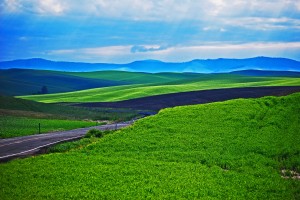Cedar Man
I
The sculptor grows calmer on the beach;
waits for the block of wood to talk with his hands,
bring the song and path his knife must take,
clear to the edge where his ancestors sit.
The Old Ones show him in dreams and hallucinations
the knife is blind to the creature of beauty embedded
in the wood until his rage dies and he offers
the storm a piece of his skin.
He dances on one foot to ease the fury
that froze his hands closed three seasons,
tosses in the air cedar chips to honor the tree
his elders name “life-giver,
great mother of the forest.”
He grows tired of a life as barren
as the wolf’s jaws in a blizzard.
Like a log along the shore, he drifts
in no direction like a man without shadow.
He watches bone, shell, feather,
amulet and agate drop to his feet.
Stepping from silence to silence
down the path of inner-darkness,
a voice emerges from his entrails.
It calls for him to dig for his life,
whittle out the confusion knots he fed with fear
and the last words that nearly lodged
permanently in his throat.
II
He kneels to cup water to his lips,
salt his nerves with the moves that will
free him from the trap.
He hopes the fool dancing in the square
will not be him or the hatchet toes of Trickster.
From the balls of his feet the currents
swirl and shake through an octopus’s eye.
In the pounding surf and spray
he sees his love at home tending the fire,
the healing poise of her supple body.
Birds flying above the beach in every direction
know from the sparks that he holds her
in his mind the way light holds
the grain of red cedar.
III
On the third day he bends south
like a cattail in the marsh.
Wind weaver carries the voices of old friends,
grandfathers who place his knife at the source,
each wave of cloud falling to the cliff,
the last rock, the last cave.
Now a figure of earth, sky, air and water,
he opens his hands to the formless haze
shaping itself into a songbird of the mind,
a grandmother who loves his failures
and angers as much as the full net of his dreams.
Throwing four logs on the fire
he starts to carve a nest for the song sparrow.
The night chant loosens the star points
of his fingers, hones his blade for the grip
of wonder, puts him within the guttural
drumming of his bowels.
Duane Niatum has published numerous collections of poetry, including Ascending Red Cedar Moon (1974); Song for the Harvester of Dreams (1980), which won the Before Columbus Foundation’s American Book Award; and Drawings of the Song Animals: New and Selected Poems (1991). His most recent book is The Pull of the Green Kite (Serif & Pixel Press, 2011). A former editor for Harper & Row’s Native American Authors series, Niatum also edited the Native American literature anthologies Carriers of the Dream Wheel (1975) and Harper’s Anthology of Twentieth Century American Poetry (1988). His own poetry has been widely anthologized and translated into more than a dozen languages.His honors include residencies at the Millay Colony for the Arts and Yaddo, the Governor’s Award from the State of Washington, and grants from the Carnegie Fund for Authors and the PEN Fund for Writers. Niatum lives in Seattle and has taught at Evergreen State College and the University of Washington, as well as area high schools.

